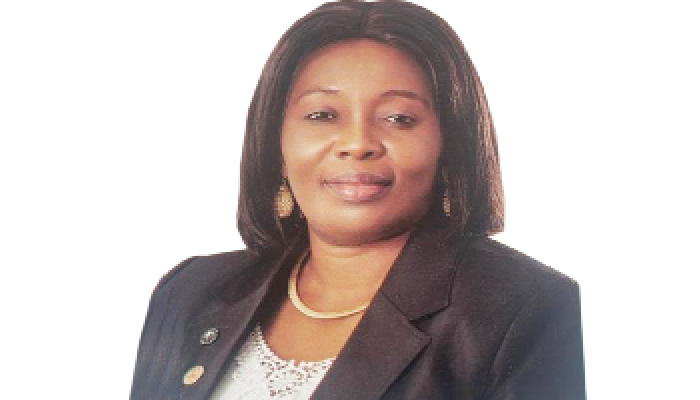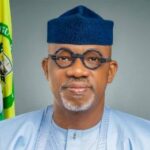
How would you describe your experience as a politician who served in two ministries as a commissioner?
By God’s grace, I was the Commissioner for Women Affairs and Social Welfare for seven years and some months. Thereafter, I served as a Commissioner for Agriculture. There was a time when I was in charge of two ministries and there was a time when I was a supervising Commissioner for Trade and Investment. I was also a dean of commissioners and special advisers. In terms of the challenges, of course, I believed in going to work on time and leading by example. People thought that as a commissioner I was supposed to resume at my office late or any day I chose to but when I was appointed, I made the people working with me understand that they had to be at the office at 8 am every working day. If you want your subordinates to be committed by coming to work early, as a leader, you must lead by example by coming to work early. At the initial stage, that was a challenge but I thank God that at one point, all the workers were used to the fact that I didn’t joke with coming to work early and I don’t joke with commitment.
Also, I thank God that in all the ministries where I served as a commissioner, I left the workers better than I met them. When I was in the Ministry of Women Affairs, we implemented the child rights law and there were times we moved around the state to make sure that those who raped our women or girls were prosecuted; we make sure we follow the cases to the end, irrespective of who the offenders were. Of course, we didn’t work alone. We worked with the Ministry of Justice and the judiciary. The lawyers did well. It was a good experience and we challenged people to encourage young women to be serious in school and any responsibility given to them because as a woman, if you are given an opportunity and you do well, you are opening doors for other women.
Despite the existence of a law protecting the rights of children, especially the girl child, in Akwa Ibom State, cases of defilement are still rampant in the state. Is that not so?
As a woman, I am worried about anything disturbing the girl child. The law is still very much in place and I want to use this opportunity to tell anybody who knows any girl child who has been defiled not to hesitate to report officially to the Ministry of Women Affairs and Social Welfare or the Ministry of Justice. These ministries have a section or a unit responsible for such cases. We also have female lawyers; we work with them and they’re so passionate about this.
You taught at the University of Uyo before you became a commissioner. Were you already a politician at the university?
I became a lecturer at the University of Uyo in 2005. While I was there, I got the appointment as a commissioner. I believe that everything that happens to someone is destined by God. Before I was appointed as commissioner, I don’t think I was involved in any political issue or meeting.
What is your assessment of women’s participation in politics in Akwa Ibom State?
Akwa Ibom State is one of the few states of the federation trying to carry women along across the local government areas. Today in Akwa Ibom State, there’s no local government area without a female councillor or female supervisor and this goes to show that women are allowed to participate in the political development of the state unlike before. And if you come to the state level, there is hardly any board or parastatal that does not have a woman; some parastatals have women as chairpersons. There are also women in the state executive council. So, the state is trying to carry women along. However, I want to advise women that when they are given an opportunity to serve in whatever capacity, they should close the door against other women. They have to do what is expected of them and even exceed the expectations of people, and also know that the position was given to them by God. So, women should not use their position or power to victimise fellow women because they will face the consequences one day.
It is often said that in Nigeria, women don’t support women in politics. How true is this claim?
I will say yes and I will also say no, because we also have men who don’t support their fellow men during elections and also have women who don’t support their fellow women. So, it depends on who the person is. A wicked person is always a wicked person.
You contested in the House of Representatives election in February but lost to your opponent in the All Progressives Congress. What do you think was responsible for your loss?
The matter is in court, so I’m not expected to comment on it because anything I say may affect the outcome of the case.
You are the Founder and Chief Executive Officer of Mary Slessor Akan-Glo Foundation. What motivated you to establish the organisation?
Mary Slessor, as we all know, came from Scotland and we called her the Scottish missionary. She went to Calabar (in Cross River State) and from Calabar, she went to Akwa Ibom State. Mary Slessor was the one who stopped the killing of twins and the banishment of their mothers. She came to Akwa Ibom State and lived in Use, Ikot Uko, now in the Ibiono Ibom Local Government Area of the state. She worked in different places in the Itu Local Government Area, in Ikono, and one of the places she lived in was Ekperpnko, my village. According to history, my grandfather’s family built a hall for her to stay and while she was living in my village in Ini, my paternal grandfather lived with her and I remember when I was in primary school, some of her house items were handed over to the Presbyterian Church of Nigeria. She established many Presbyterian churches and that is why one cannot talk about Mary Slessor without mentioning the Presbyterian Church of Nigeria.
Because my grandfather lived with her, it was a privilege and so when we grew up, my father told us stories about Mary Slessor. So, when I was in Secondary School, I told God that I would try to use any opportunity I had to do something to support her efforts. So, I did not just wake up to establish the Mary Slessor Akan-Glo Foundation. It is a fulfilled dream; a dream of many years and that is why in the Foundation, we are continuing with the humanitarian services that Mary Slessor used to do. We carry out sensitisation about the need to shun discrimination against multiple birth parents and their children. One of the things Mary Slessor used to do was to assist the underprivileged and the elderly. The ‘Akan’ in the name of the foundation was derived from my grandfather’s name, Akankpo, who lived with Mary Slessor, and ‘Glo’ was derived from my name.
How have you improved the lives of the underprivileged and the elderly in society through the foundation?
We started about three years ago and before we were officially unveiled, we had to build a chapel in Mary Slessor’s honour at Use Ikot Oku, in the Ibiono Ibom Local Government Area and that chapel is called Mary Slessor Chapel because she lived there and that place was like her headquarters. When she came to Akwa Ibom, she used to go from one place to another and that was where she died. The chapel is also a place of prayer. We officially unveiled the foundation in June 2023, and so far, we have supported widows and youths and marked the day of the girl child by visiting orphanages to donate food items and support students because there are students there that we are sponsoring. On December 2 this year, we are going to mark the birthday of Mary Slessor because she was born on December 2, 1848, and on that occasion, multiple birth children and their parents will celebrate her birthday at Ibom Hall that day.
Are there other things your grandfather, who lived with Mary Slessor, told you about her and her activities that many do not know?
Apart from stopping the killing of twins and other multiple-birth children and the banishment of their parents, Mary Slessor established many customary courts. If you go to Ini, you will see relics of customary courts established by Mary Slessor and she served as the vice president of those courts. That was how she was able to stop the victimisation of women. In Akwa Ibom State, there were some places where when a traditional person died, a human sacrifice was made before the burial. Mary Slessor stopped such sacrifices in the state. Apart from that, she encouraged the underprivileged to have a skill. Sometimes, she trained them how to sew and many other things. That is what we are doing at the Mary Slessor Akan-Glo Foundation.
I remember when we celebrated International Youth Day, we gave some youths a lot and taught them how to raise seedlings because Mary Slessor planted seeds and other plants; when the underprivileged visited her, she gave them (food) from her farms. She was an agriculturalist and that is what we are also doing, teaching young people to find something to do. They must find something to do; it is not enough to just fold their arms because they are underprivileged.
Mary Slessor was also an evangelist, moving from one place to another organising crusades, and preaching the word of God to people. The legacy of Mary Slessor should be sustained. At the foundation, there is a board of trustees; we have staff members, and coordinators of programmes, women and children, persons with disabilities, and the elderly. So people should expect the foundation to continue to assist people and add value to their lives. We also have our partners, people who love what we are doing and support widows and the needy through the foundation, but what we assure everybody is that we are committed to the welfare of the underprivileged in society.
How would you describe your childhood days?
First of all, I was blessed to be born to disciplined parents. I was born into a Christian home and I am still a Christian. My parents are still alive and still active Christians. My parents are retired teachers. I am the third child and third daughter. My father is someone who believes in results and not efforts, whether you are a girl or a boy, and I thank God that when we were young, my father did not discriminate against us and we grew up together. I grew up with morning devotion in the morning and it has helped me to date. I am surprised that some parents don’t allow their children to sweep or do morning devotion; such parents don’t understand that it is part of the training. My parents taught me and my siblings never to miss church service and other activities. I thank them for the discipline they instilled in me and my siblings.
There is a community in Ini where parents of twins and other multiple-birth children are not allowed to fetch water from the only stream in the community. What is the foundation doing to end this discrimination?
You know that to change any habit or any situation or to make life better, one thing you have to do is to create awareness and sensitise people and that is why when it came to our notice that there was a situation like that, we went to the community for sensitisation. It’s not only that community; there are some communities we visited and there are some that we are planning to visit to urge people not to discriminate against multiple-birth children and their parents. Of course, when we visited that community, we used the opportunity to appeal to different donor agencies, the state government, and the Federal Government to assist that community. What they need is a water project because if there is pipe-borne water, everybody will benefit from it. I know that in the Ini Local Government Area, there are some areas where it is difficult to drill water because of the terrain. That is why we are appealing to donor agencies to come and assist that community because the major problem there is (the lack of potable) water and so if there is a water project there, multiple-birth children and their parents will not be discriminated against again because they will fetch water from the community water project.
How is the foundation funded?
For now, as I told you, we have a board of trustees and we also have partners. Anybody is free to come. We have a corporate account and the foundation is registered with the Corporate Affairs Commission and we expect more partners.





